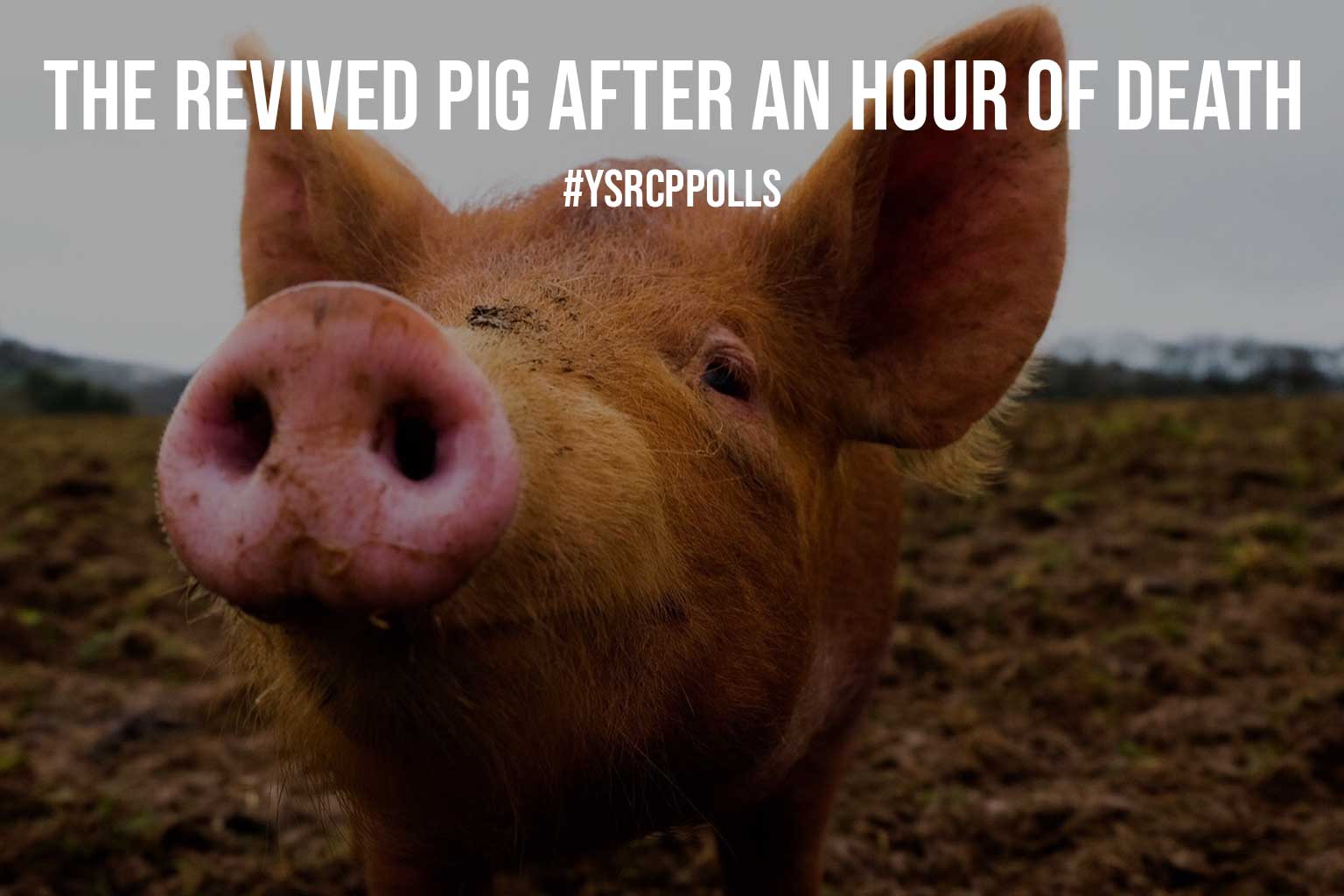The pigs have been dead for an hour. The cause of death is cardiac arrest. But researchers from Yale University hooked up their bodies to a system that pumped fluid with nutrients, and after 6 hours, the pigs’ organs began to show signs of life again.
While we are talking only about partial restoration of cells. However, the discovery will delay their death and save more organs for transplantation. Another discovery you can make by joining the online casino in India and winning your first jackpot there!
A team of researchers from Yale University was able to partially repair some of the damage to cells caused by loss of blood flow after death. The pigs’ hearts showed electrical activity. The cells in their kidneys, liver, and lungs were functioning again and showing signs of recovery.

The discovery was published Wednesday in the journal Nature. It suggests that cell death can be delayed longer than is currently possible.
How Does The System Work?
The scientists suggest a new system. This system has shown that we can not only slow down cell damage but actually activate their repair at the genetic level. This may force us to reconsider what counts as dead.
In 2019, a Yale University team questioned the idea that brain death is permanent, reporting that it was able to partially revive the brains of pigs hours after slaughter.
For the current experiment, the researchers wanted to see if the same method, in which a blood substitute is injected into an animal’s circulatory system, could be used to revitalize other organs.
Nenad Sestan told reporters that they have restored some cell function in many vital organs that would have been dead without their intervention.
These cells work several hours after they should not function. Also, this tells us that even an hour after death in many vital organs this process can be restored.
Also Read: Mangafreak: Access Latest Manga Books Online
Saving The Organs
The standard practice for preserving organs for transplantation is static cold storage. Cooling organs quickly after removal can reduce their oxygen demand and prevent cell death, but not every organ can be saved.
There is also growing interested in the use of extracorporeal membrane oxygenation (ECMO) for patients who cannot be resuscitated to save their organs for transplantation.
An ECMO machine is usually used as a life support system for patients with severe heart or lung damage. It pumps blood outside the body to remove carbon dioxide. Then it adds oxygen and returns it back to the body.
Yale’s system, dubbed OrganEx, is a bit more complex. While ECMO only replaces the heart and lungs, OrganEx also mimics kidney function. It consists of pumps, sensors, heaters, and filters that control the flow and temperature of the blood substitute that is forced through the body.
If ECMO only slows down cell death, the study suggests that OrganEx may reverse some aspects of cell death.
Also Read: 10 Hidden Facts of Sun Temple in Konark
Changing the Meaning of Death
To do this, the Yale team used their discovery. It is a proprietary liquid containing electrolytes, vitamins, amino acids, and other nutrients. As well as a cocktail of 13 drugs that reduce cell death and cellular stress and modulate the immune and nervous systems.
The researchers mixed the synthetic fluid with pig blood and ran it into a system of pumps. Pumps controlled their flow and temperature throughout the circulatory system.
They speculate that this substrate helped revitalize the pig’s organs. It was also found that the organs treated with the system showed fewer signs of hemorrhage and tissue swelling than those of the control pigs treated with the ECMO machine.
It is not yet known whether the restored organs will start working in another organism. The next step is to transplant them into other pigs to see how well they function compared to organs preserved in a conventional way.
In their study, the authors suggest that the system will allow the creation of new methods of treating people after a stroke.
